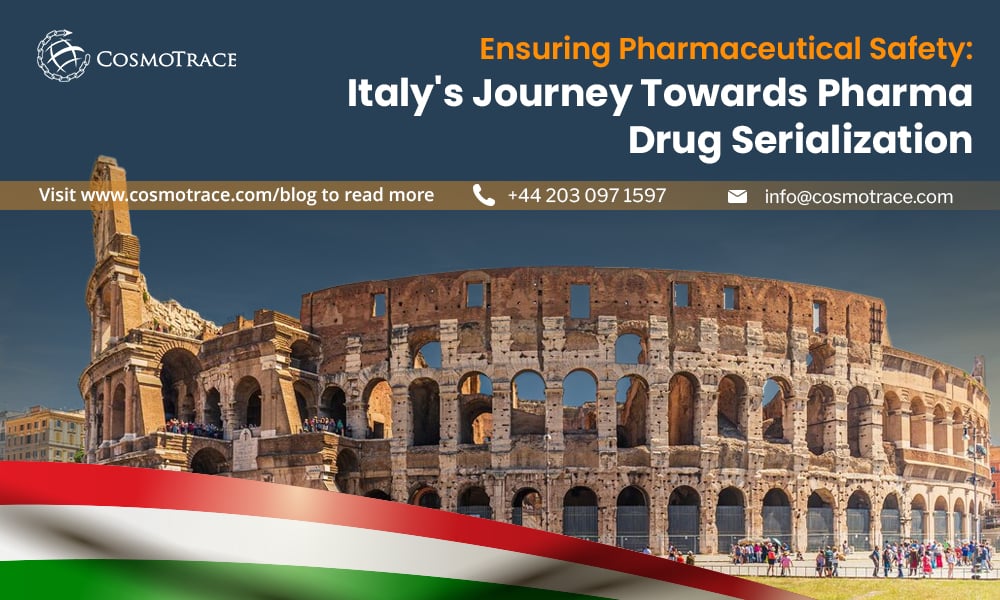In the realm of pharmaceuticals, ensuring the safety and authenticity of medicinal products is paramount. Italy, like many other countries, has been diligent in its efforts to establish robust systems for pharmaceutical drug traceability. With regulations evolving and deadlines looming, let's delve into Italy's approach to pharmaceutical traceability and the steps being taken to adhere to European Union (EU) regulations.
Regulatory Framework:
Italy, through Article 40 of Law 1st March 2002 no. 39, mandates stringent measures for pharmaceutical traceability. According to this regulation, all stakeholders in the pharmaceutical chain must record and transmit essential product information, including a unique product code and identification number, to a centralized database. This includes both the sender and receiver of the product. Furthermore, pharmaceutical companies holding Marketing Authorizations (MAs) in Italy are required to affix specific anti-fraud stickers on each pack, containing crucial information such as the MA holder's name, product details, sticker progressive number, MA number, and pack size description.
Reference https://www.direnzo.biz/it/en/traceability-medicines-2025/#
Transition Challenges:
As of February 2019, the EU introduced a new serialization system for pharmaceuticals. While most countries complied promptly, Italy, along with Belgium and Greece, was granted an extension until 2025.
This extension aimed to facilitate a smoother transition, considering pre-existing serial labels like the Bollino and EOF label. However, the transition poses several challenges, including determining which pharmaceutical products fall within the scope of the new regulations and establishing robust data management and exchange protocols.
The Road Ahead:
The impending deadline of 9th February 2025 marks a crucial milestone for Italy and Greece, as they transition to the EU Falsified Medicines Directive (EU-FMD). One of the primary focuses is the rollout of the Italian National Medicines Verification System (NMVS), which raises pertinent questions regarding its integration with existing systems and the complexities of implementation.
Compliance Imperatives:
Ensuring compliance with EU FMD regulations is imperative for pharmaceutical companies. Failure to adhere to serialization requirements can result in penalties and hinder market access. Therefore, collaboration between pharmaceutical companies, supply chain partners, and technology vendors is vital in navigating these regulatory landscapes successfully.
Conclusion:
Italy's journey towards pharmaceutical drug traceability exemplifies a commitment to patient safety and regulatory compliance. By embracing evolving regulations and leveraging technological solutions, Italy strides towards a future where pharmaceutical products are safer, more transparent, and ultimately, more trustworthy. As we navigate the complexities of drug traceability, collaboration, and innovation remain key in safeguarding public health and fostering trust in the pharmaceutical industry.
How CosmoTrace Can Help:
Amidst these regulatory complexities, CosmoTrace offers invaluable support to pharmaceutical companies. Specializing in serialization consulting, implementation, and integration services, we provide expertise to assist our clients in managing end-to-end serialization projects and preparing them for existing and upcoming regulations worldwide.
We are well-versed in compliance regulations for various markets and can assist you in implementing the Italian NMVS pharmaceutical serialization requirements.
Our team of experts strategizes and plans end-to-end solutions, drawing on years of experience in product serialization, pharmaceutical supply chains, life sciences, and brand integrity.
Disclaimer
This information is being provided ‘As Is’ with no claims of suitability for a particular purpose. It represents just one possible interpretation of information available in the public domain or through membership organizations, and that interpretation is subject to change. This information does not constitute legal advice. Users must refer to the source material for the complete requirements and form their own interpretation before making business decisions.


